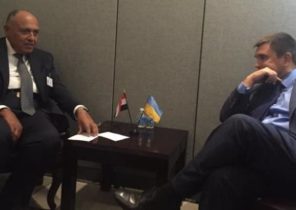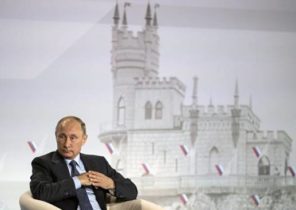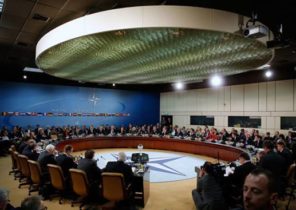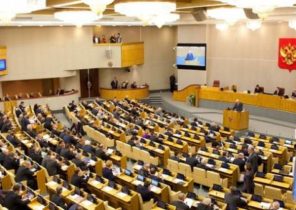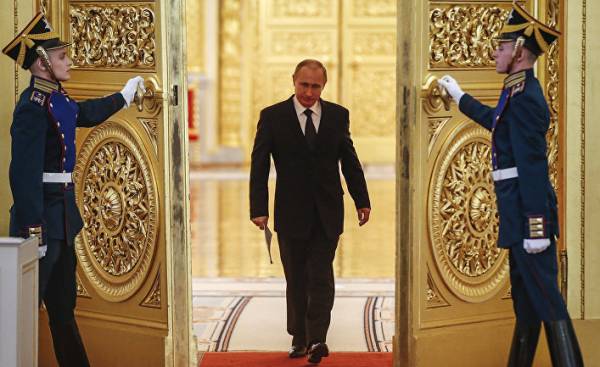
I was a teenager when I first read an article by Samuel Huntington (Samuel Huntington) 1993 “the Clash of civilizations?” (Clash of Civilizations?). She made me a very strong impression. Huntington presented the cultural or “civilizational” identity as the main reasons for the convergence and conflicts in international politics. His arguments were convincing, eloquent and I at the time thought was an objective reason. And only a few years this charm has disappeared.
The concept of Huntington is quite strong, and the war that the jihadist movement is now waging against the West, gives it additional credibility. After Putin came to power, Russia has adopted the ideas of Huntington in order to provide the West is the impact that it had from 1980-ies, and to justify the Putin regime in the eyes of the foreign community, despite its aggressive foreign policy and authoritarianism.
In the last three years Russia has stepped up its activities abroad, while increasingly using propaganda and “civilizational” arguments. The Russians are not trying to use these arguments to say that Russia is good, because it would be too flimsy. But they claim that all others are for the West, more dangerous enemies than themselves. Especially Islam.
Russian, as a rule, for Huntington is not directly referenced. But they widely use the concept of civilizational conflict. Knowledge of the Russian language allowed me to observe this discourse since the beginning of 2000-ies. Arguments, to which the opt Russian fighters information front — the same that was used 15 years ago. Islam is the enemy; the decadent West is doomed, and everything goes to the fact that it will be replaced with Muslims — in the same way as the change of the Roman civilization came the barbarians; modern democracy is not able to cope with these challenges; the Western political elites have betrayed their people, condemning them to destruction. All these and many other similar ideas Russia has circulated long before they recently flourished in Europe and America.
Of course, this trend of information warfare would be ineffective, unless there are some very real problems. Problems such as high crime rates among migrants in Europe and terrorism are realities of our lives — as well as the apparent inability of the European political elite to decide these questions. Russian recipe of propaganda is to mix truth with lies and false interpretation of the facts. The resulting mix is used to demoralize and disorient the target audience and to increase its “soft power” to support the Kremlin’s policy.
In the case of “civilizational” discourse of the information war waged by Russia, there are two main objectives. A more General aim is to elevate the role of Moscow in the international arena. From the point of view of intergovernmental policy Putin’s Russia is clearly an outcast. However, if you look at world events through the lens of civilizational conflict, then Russia suddenly cease to be the main antagonist, and it is Islam. Moreover, from this perspective, Moscow can be perceived as an ally. The idea that Russians strive to instill in America and Europe, sounds like this: “Anything, if the Russians take over their neighbors — we still have to they were on our side to fight the real enemies.”
Another goal of Russia is Subversion and influence abroad by means of ideology. After the Bolshevik revolution in autumn 1917, the Russians relied on ideology as a critical tool of foreign policy. In the fall of communism they have this opportunity lost. Apparently, they are so not enough of this resource that they decided to replace communism with something else. This time it is a right-wing chauvinism, combined with a suspicious attitude towards modern democracy and the existing world order in General.
One element of this activity is ideological propaganda, which is conducted in Russian. She focused on Russian-speaking inhabitants of America and Europe, and the population of the former Russian colonies.
Perhaps more important is the other component of this work is networking with the right-wing parties and organisations across the Western world and supporting them. Of course, the Russians are still using their old ties with radical leftist organizations like the “Left party” of Germany, but their primary focus is now on the far right. Sometimes it even takes the form of direct financial assistance — as in the case with the National front, marine Le Pen (Marine Le Pen). Moscow has positioned itself as the main ally of the far right in the struggle against Islam and, most importantly, against the political establishment of the countries of the West.
The Kremlin seeks to ensure that at least to undermine the foundations of Western democracies, and to weaken the position of those politicians who are prepared to counteract Russia’s attempts to resume expansion. However, if some ultra-right players manage to go beyond this agenda and actually take control in one or two countries, it would be consistent with the objectives of Moscow.
In truth, the Foundation of Putin’s regime, no ideology, no. It is a classic kleptocracy, pragmatic uses distorted elements of the worldview of Huntington to take advantage of the difficulties of the West and to establish links with Western opposition forces in the hope that they will hinder the effective resistance of the geopolitical ambitions of the Kremlin. Russia sets a smokescreen under the guise of a clash of civilizations, to hide their plans for the creation of the Empire.
David Batashvili from 2008 to 2013 was an analyst at the national security Council of Georgia.


